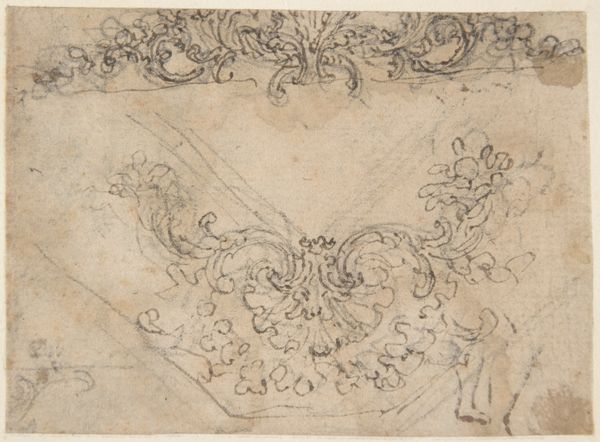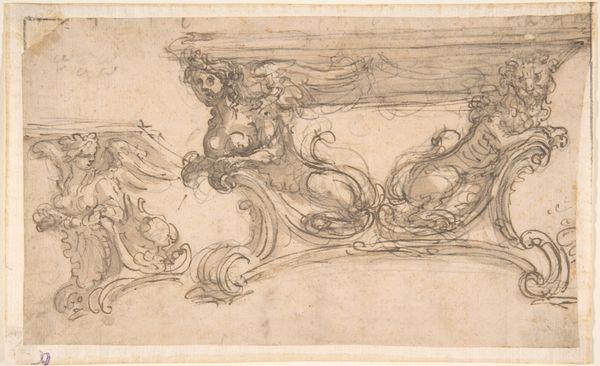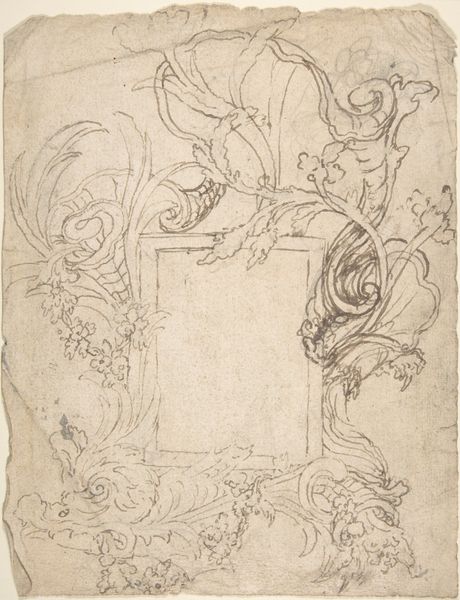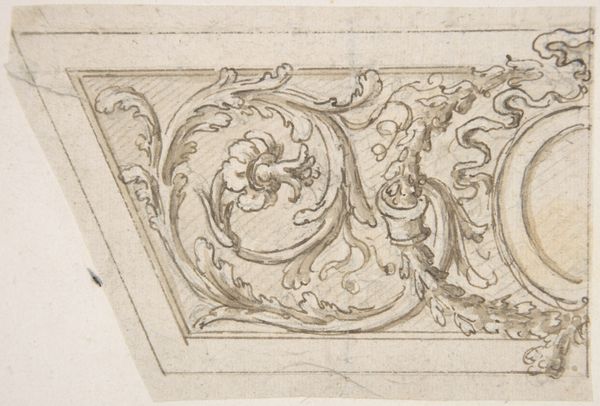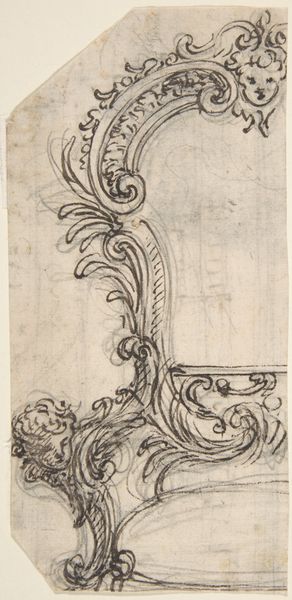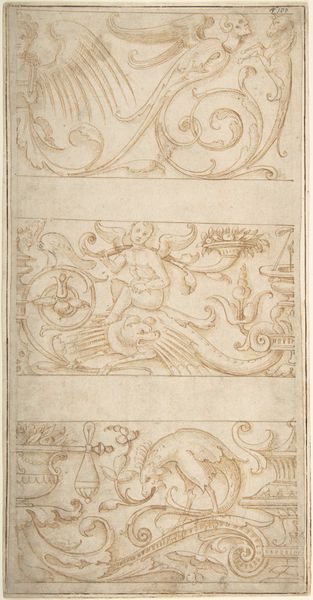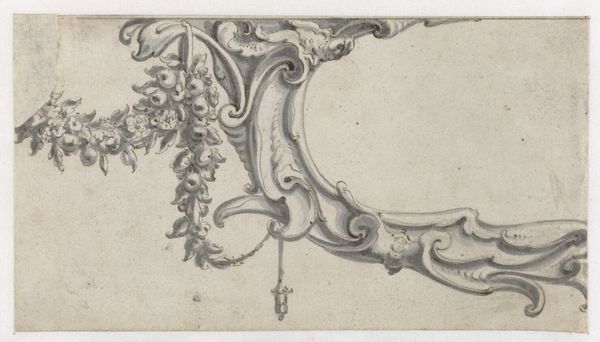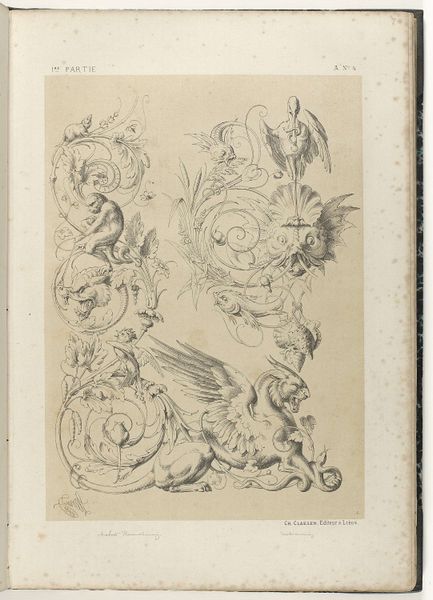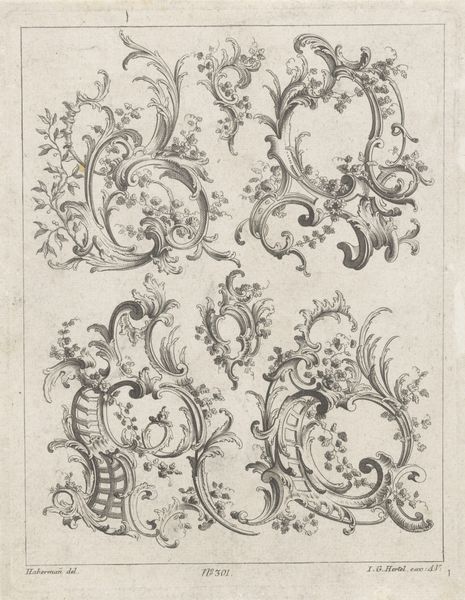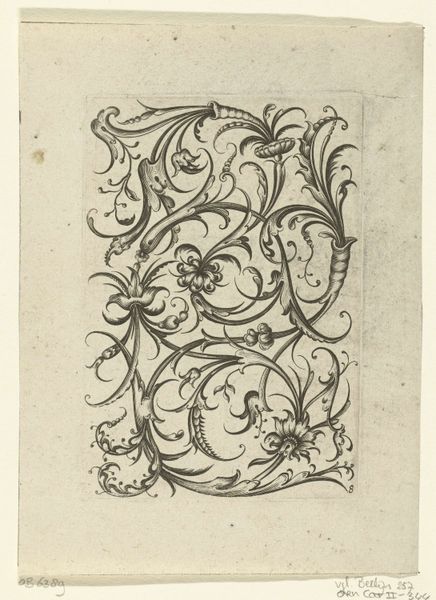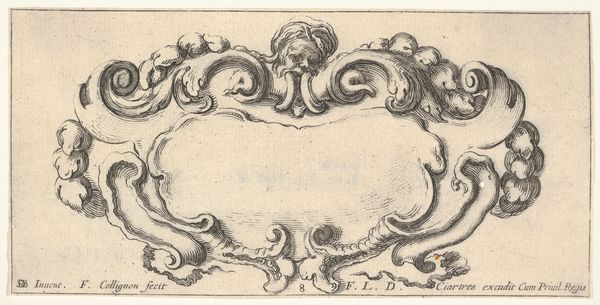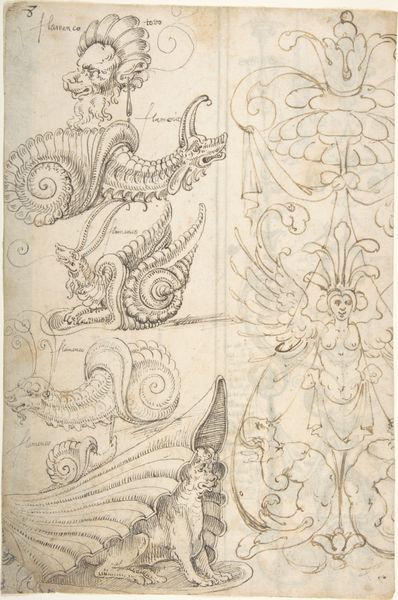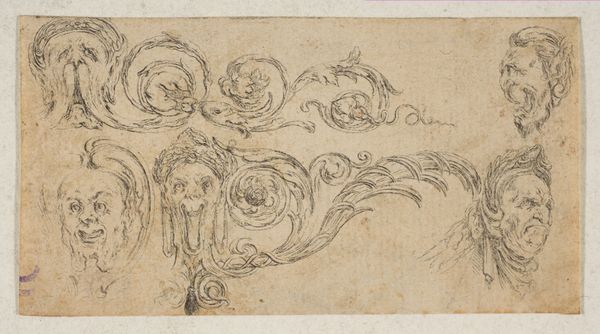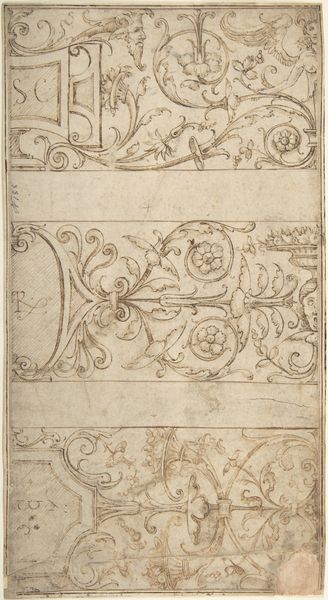
Design for a Frieze Decorated With a Palmette and Tendrils (recto); Two Designs for a Rosette (verso) 1652 - 1725
0:00
0:00
drawing, ornament, print, paper, pencil
#
drawing
#
ornament
#
baroque
# print
#
pen sketch
#
paper
#
pencil
#
line
#
decorative-art
Dimensions: sheet: 1 5/8 x 4 5/16 in. (4.2 x 11 cm)
Copyright: Public Domain
Editor: We're looking at Giovanni Battista Foggini's "Design for a Frieze Decorated With a Palmette and Tendrils," likely made between 1652 and 1725. It's a drawing in pen and pencil on paper. The design itself looks like something that would be carved in stone, but its actual scale feels delicate. What jumps out at you when you look at this work? Curator: Immediately, I observe the confident, flowing lines. Consider how the artist uses line weight to create depth and shadow. Notice the strategic repetition of curvilinear motifs, especially within the tendrils and the palmette itself. Foggini masterfully establishes rhythm through varied densities of line and form. The balance achieved between the structured palmette and free-flowing tendrils invites scrutiny. How do you perceive that tension? Editor: It’s true, the contrast makes the central palmette almost… explode, like it’s barely contained. Does that tension also contribute to its overall dynamism? Curator: Precisely. Moreover, analyze the spatial relationships created by these lines. Do the shapes suggest a three-dimensional plane? How does the artist utilize the negative space to accentuate the design elements themselves? The interplay is quite sophisticated. Editor: So it’s not just about what is drawn, but the conscious arrangement of those lines, and how they work with what's left untouched? Curator: Precisely. Form informs function and expression here. The relationships are what allow the artwork to "work". These elements show this piece as more than merely preparatory. Editor: I see the composition differently now, recognizing the movement in the lines and the overall balance of forms and empty space. Thank you. Curator: A pleasure. It is through rigorous inspection of elements, in relation, that we locate meaning.
Comments
No comments
Be the first to comment and join the conversation on the ultimate creative platform.
